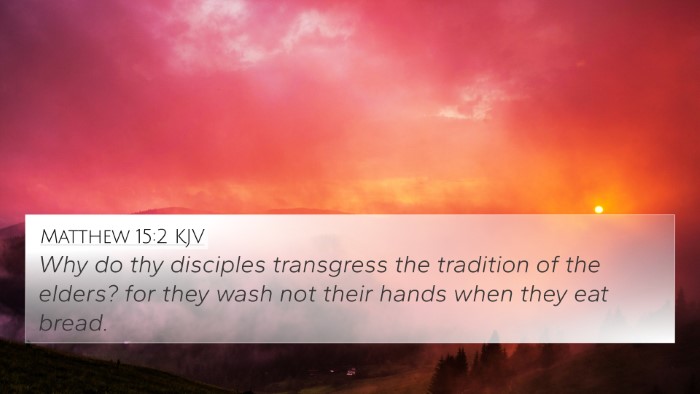Understanding Luke 20:3
In Luke 20:3, Jesus responds to the inquiries of the religious leaders regarding the source of his authority: "And He answered and said to them, 'I also will ask you one thing, and you tell Me: The baptism of John—was it from heaven or from men?'” This moment is critical as it reflects a pattern of Jesus engaging his questioners, often turning their challenges back to them in a way that exposes their own motives and understanding.
Commentary Insights
- Matthew Henry: Henry emphasizes that this interaction illustrates the wisdom of Christ. By asking the question about John's baptism, Jesus compels the leaders to contemplate the implications of their beliefs about John the Baptist, who had already proclaimed Him as the Messiah. This strategy not only reveals their hypocrisy but also places them in a difficult position regarding public opinion.
- Albert Barnes: Barnes highlights that this question serves to reveal the truth about Jesus' authority. By linking His authority to that of John, who baptized and preached the coming of Christ, Jesus indicates that His ministry is legitimate and derived from divine endorsement. Furthermore, it challenges the leaders to consider who they really were in light of God's plan.
- Adam Clarke: Clarke provides insight into the significance of John’s baptism as God’s recognition of Jesus. Clarke points out that the religious leaders’ hesitation to answer reveals their fear of losing power and influence over the people, demonstrating the tension between worldly authority and divine truth.
Key Themes and Comparisons
Luke 20:3 underscores themes of authority, wisdom in dialogue, and the nature of true accountability to God. It encourages believers to discern the source of spiritual authority and to engage with questions of faith critically.
Bible Verse Cross-References
- Matthew 21:25 - "The baptism of John, whence was it? From heaven, or of men?" This parallels Jesus’ question and shows that the religious leaders faced the same dilemma.
- John 1:29 - "The next day John saw Jesus coming toward him, and said, 'Behold! The Lamb of God who takes away the sin of the world!'" This reference connects John’s acknowledgment of Jesus as the Messiah.
- Mark 11:30 - Another account of the question about John’s authority, reinforcing the challenges Jesus faced from religious leaders.
- Luke 7:29-30 - Highlights the acceptance of God’s counsel by the people versus the religious leaders’ rejection, showcasing their conflict regarding John’s ministry.
- Acts 19:3 - Reflects on the significance of baptism and the subsequent understanding of believers regarding John's message.
- John 3:26-30 - Emphasizes John’s role and his acknowledgment of Christ’s superior authority and mission.
- Luke 3:2 - Sets the context for John’s ministry and emphasizes the prophetic fulfillment of preparing the way for Jesus.
- Acts 10:37-38 - Notes the ministry of Jesus after John's preaching, tying back to the impact of John’s baptism.
- 1 Corinthians 1:13 - Paul addresses divisions in the church and reflects on the significance of following Christ over men, which resonates with the issues raised in the question posed by Jesus.
- Matthew 16:15-17 - Jesus asks His disciples who they say He is, a parallel to how He engages the religious leaders, emphasizing self-discovery of truth.
Conclusion
Through Luke 20:3, we see the importance of discernment in recognizing the divine source of authority amidst human opinions. The connections between this verse and others enrich our understanding of Jesus' mission and the pivotal role of John the Baptist. This engagement is essential for believers today as they navigate their faith, encouraging a deep examination of the sources of spiritual authority they choose to follow.
Thematic Bible Verse Connections
By studying these connections and references, believers can engage in effective Bible cross-referencing, leading to a comprehensive understanding of Scripture. Tools for Bible cross-referencing, such as concordances and reference guides, play a crucial role in unveiling the relationships and themes across the Biblical text.





